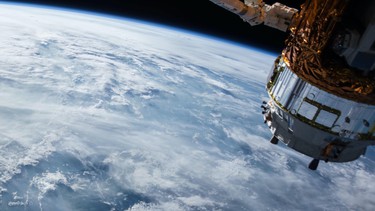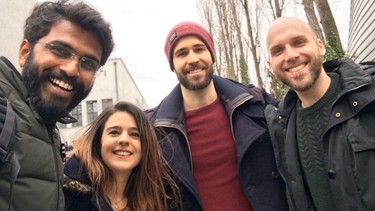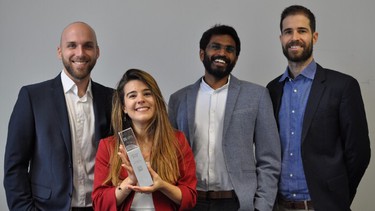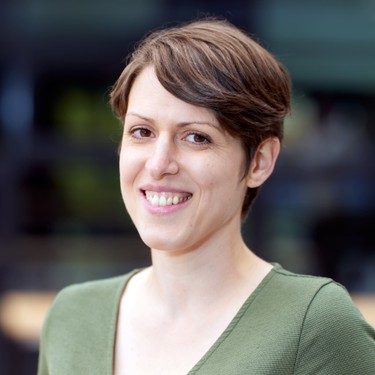Vyoma - Increasing confidence in space with in-situ debris tracking & AI

Vyoma delivers safe and automated satellite operations through space-based cameras & AI, drastically reducing mission costs.
How would you describe your business idea to a potential investor (who is not an expert in your particular profession)?
The next generation of satellite operations is here. Vyoma combines Artificial Intelligence (AI) with real-time, space-based debris observations to deliver safe and automated satellite operations to an industry suffering from inefficiencies and data uncertainty.
Our customers, such as satellite operators, have access to a plethora of services and data packages via our web-platform. The services range from detection of close approaches and re-entry predictions all the way to automated collision avoidance. Furthermore, by having in-situ observations of debris, we will improve the orbital information of these risky objects and provide data and data-derived products to operators, reinsurers and space agencies
What problem do you want to solve? What is your goal?
We aim to solve the space sustainability problem by bringing automation to the forefront with a drastic reduction in costs!
Let us put that into perspective: we known that the near-Earth space environment is becoming increasingly crowded — today there are over 4,000 operational satellites, a number predicted to rise to 100,000 within this decade alone. Current operational practices rely on slow human-in-the-loop, manual procedures and legacy software from the 70s.
In 10 years, with predictions showing that there will be a conjunction warning every 0.4 seconds, you can easily see that current operational methods are not sustainable. Only automation, supported by an improvement in data quality, can ensure that space remains usable for generation to come and that mankind will profit from a healthy space economy.
How did you come up with your idea/concept?
Three of the founders have worked at the European Space Agency (ESA) and could experience first-hand how current operations can be improved. The founders have developed methods and algorithms during their PhDs that capture and alleviate problems within the satellite operations industry.
After meeting each other at ESA and at International conferences, what really brought us together was a genuine desire for working towards space sustainability, a deep mutual respect for each other’s work and a passion for challenges. We shared a vision of what the future of space should look like and this drives us every day to achieve this goal.

What is your business model?
On the B2B segment, we serve primarily satellite operators and owners. We offer them access to our services via the web platform, using a monthly subscription model whose price scales with their number of satellites. We also offer the possibility for these customers to host our automated operations software on their premises.
Once we deploy our own constellation, we will further improve our data-derived services. We will also offer data package subscriptions and consultancy services to reinsurers, policy-makers, space agencies and other governmental institutions. Space plays an important geo-political role and we want to support B2G decision-makers to make the right choices towards space sustainability.
Where are you on your timeline?
We are due to launch our initial services platform in Spring 2021 and are actively working on the design of our satellite constellation. Talks are currently ongoing to close the first deals with our customers.
We have secured a pre-seed round and have expanded our development team. Furthermore, we have been awarded two contracts with the European Space Agency last year and these projects are currently ongoing. In addition, we have submitted three further proposals in pan-European consortia for space and defence institutions. We will know the results later this year.

Where do you expect to be in 5 years?
We hope to be a trusted partner in space operations across the world, stemming from the currently ongoing deep-tech developments at our organization. Within 5 years, we will have launched our complete satellite constellation that will observe debris from space and we will be self-sufficient in generating revenues.
Throughout our journey we have been supported by great people in the space and business sectors, who asked for nothing in return. As such, in 5 years, we hope to be in a position where we can give back to the community, by helping out the new generation of space companies that will come after us!
What is your fascination with space?
Space — the final frontier — always had an immense appeal to us founders due to the challenges and opportunities it poses. We are thrilled to live in a time where human spaceflight to Moon and Mars is a possibility. We want to make sure that the near-Earth environment and its space debris population does not become the most perilous part of such missions.
Why did you decide to work with XPRENEURS?
We became connected to XPRENEURS via the Galileo Masters Challenge whose Incubation award we won. We thought it was the right program for us, due to its focus on young, deep-tech companies and the mentorship provided from an experienced team, backed by a network of industry experts and investors to top it up. Being at an early stage ourselves, we will use the one-year program awarded to us to accelerate our start-up, streamline business processes and focus heavily on customer acquisition.
Get more information about Vyoma on their website or connect with the team on LinkedIn, Instagram, Twitter, or Facebook.
You want to become part of the XPRENEURS incubator program as well?
Get more information and apply at https://xpreneurs.io/.
